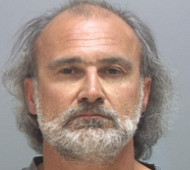6/22/2016
US Supreme Court Allows Gathering Evidence Through Illegal Traffic StopsUS Supreme Court allows police to keep evidence obtained from illegal searches if an unpaid traffic ticket is found after the fact.

A 5 to 3 ruling Tuesday by the US Supreme Court will make it much less likely that evidence will be suppressed if police officers conduct an illegal traffic stop. The case under review did not directly involve a traffic stop. Instead, police were watching a suspected drug house in South Salt Lake City, Utah when Edward Joseph Strieff Jr emerged on December 21, 2006.
Detective Douglas Fackrell had no reason to believe Strieff had done anything wrong, but he nonetheless followed Strieff to the parking lot of a 7-Eleven and demanded that the man produce his driver's license. Strieff did so, and an outstanding warrant for an unpaid traffic ticket was discovered. Strieff was then arrested with methamphetamine in his pocket. Even prosecutors admit that Detective Fackrell's initial interaction with Strieff was illegal stop, and for that reason Utah's Supreme Court overturned Strieff's conviction. The US Supreme Court majority, however, took the case as an opportunity to roll back the exclusionary rule, which requires suppression of evidence obtained by police misconduct.
"Officer Fackrell was at most negligent," Justice Clarence Thomas wrote for the majority. "While Officer Fackrell's decision to initiate the stop was mistaken, his conduct thereafter was lawful. The officer's decision to run the warrant check was a negligibly burdensome precaution for officer safety."
The majority reasoned that the minor mistake made in the initial stop was "attenuated" by the existence of the arrest warrant for Strieff. The warrant served as an independent basis for Strieff's search and arrest. Suppressing the evidence in this case, the majority argued, would serve little, if any, deterrent value. In a dissenting opinion, Justice Sonia Sotomayor came to the opposite conclusion.
"The court today holds that the discovery of a warrant for an unpaid parking ticket will forgive a police officer's violation of your Fourth Amendment rights," Justice Sotomayor wrote. "It is tempting in a case like this, where illegal conduct by an officer uncovers illegal conduct by a civilian, to forgive the officer. After all, his instincts, although unconstitutional, were correct. But a basic principle lies at the heart of the Fourth Amendment: Two wrongs don't make a right."
Utah currently lists 180,000 outstanding warrants, which means that one out of every ten of the state's drivers could have an outstanding warrant. This could, the minority argued, serve as an incentive to perform dragnet searches.
"The mere existence of a warrant not only gives an officer legal cause to arrest and search a person, it also forgives an officer who, with no knowledge of the warrant at all, unlawfully stops that person on a whim or hunch," Justice Sotomayor explained.
A copy of the ruling is available in a 170k PDF file at the source link below.


